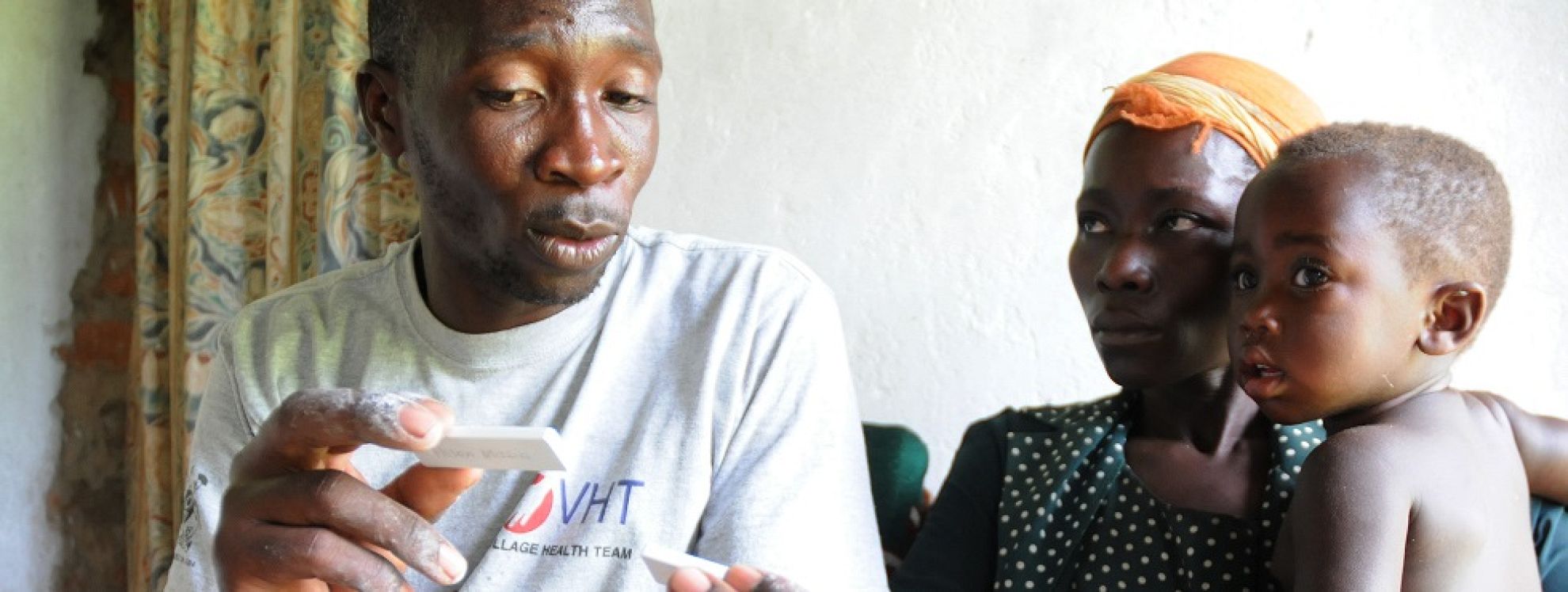
Delivering health services to children through integrated community case management in Uganda
23 October 2014Malaria Consortium is pleased to announce that Agnes Nanyonjo, Research Officer in our Uganda office, has completed her doctoral thesis on 'Delivering health services to children through integrated community case management in Uganda – from innovation to institutionalisation'. The thesis is for the Degree of Doctor of Medicine at the Karolinska Institutet, Sweden (defended on 24 October 2014).
Agnes examined the uptake and impact of integrated community case management (iCCM) in nine districts of midwestern and central Uganda. iCCM involves the training of community health workers (CHWs) to diagnose and treat children with pneumonia, diarrhoea and malaria, while referring severely ill children to higher level health facilities. The research includes four studies, focusing on community acceptability, perceived quality of care, appropriate treatment and access to referral care. The studies were conducted among parents and guardians of children under five as well as community members, in order to formulate recommendations for improved implementation of iCCM at scale.
Findings indicated that CHWs were seen as acceptable providers of child health services and the communities appreciated the treatment provided. Perceived quality of care was higher among parents and guardians of children treated by CHWs relative to those treated by primary health facility workers. There was also a significant increase in the proportion of children who received antibiotics for pneumonia and oral rehydration salts for diarrhoea among children. Furthermore there was no significant difference observered in the use of CHW services between the poorest and least poor households. These findings suggest that iCCM can lead to equitable scale-up of appropriate treatment for sick children.
However, no such increase was observed in the number of children who received zinc for diarrhoea. Problems were also identified with children referred by CHWs to higher level health facilities not seeking care at these facilities. Completion of referral was hampered by both demand-related factors among community members and access barriers within the health system.
The thesis concluded that in order to achieve optimal functioning and impact of iCCM, targeted efforts to embed the programme into the community and health system functions may be required. Measures could include effective behaviour change communication, supervision and motivation of CHWs and functional drug supply chains. Ultimately local, sub-national, and national level ownership is required to ensure institutionalisation of iCCM into the health system.
Click here to access the full thesis
Country: Uganda
Keywords: Health system strengthening | Maternal, neonatal and child health | Community delivery
Latest news
- Malaria Consortium honoured by Ugandan government for contribution to combat malaria23rd April 2024
- International summit calls for AMR accountability in public health interventions21st March 2024
- Global SMC community celebrates new milestone at SMC Alliance Annual Meeting in Nigeria6th March 2024
- Scaling up key interventions could halve pneumonia-related childhood mortality13th February 2024
- Malaria Consortium and eGov Foundation join Mozambique’s national malaria programme to digitalise seasonal malaria chemoprevention campaigns8th February 2024
- World’s first malaria vaccine rollout launched in Cameroon22nd January 2024